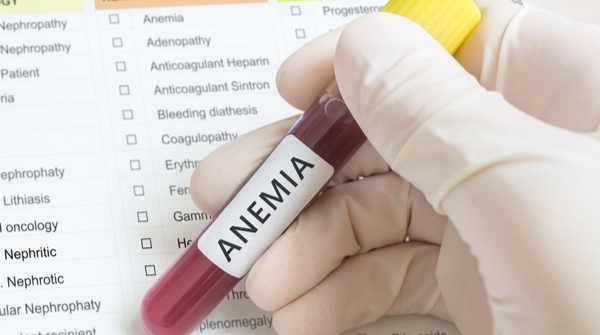

Diabetes and Anaemia are intricately relates. If you are a diabetic, you’ll need to have your blood checked regularly for anemia. If you are diagnosed for Anaemia early on, you can better manage the issues causing it. You need to be extra careful if you have been diagnosed with both the conditions.


Usually, it happens because you don’t have enough red blood cells which can make you more likely to get certain diabetes complications, like eye and nerve damage. It can also worsen kidney, heart, and artery disease, common to people with diabetes. Diabetes quite often leads to kidney damage and can be a reason for anaemia.

A healthy kidney usually knows when to start making new red blood cells and release a hormone called erythropoietin which signals the bone marrow to start making more. When kidneys are damaged they don’t send out enough erythropoietin to match up to your needs.
It is common for a lot of people to not realise they have a kidney problem until it’s very far along. And in case you test positive for anaemia it could be a sign of a problem with your kidneys. People who are diabetic are more likely to have inflamed blood vessels. This can stop the bone marrow from getting the signal it needs to make more red blood cells.
Some medications that are used to treat diabetes can drop your levels of the protein – haemoglobin, which is needed to carry oxygen through the blood. These drugs include fibrates, metformin & thiazolidinediones. If you are on one of these, talk to your doctor about your risk for anaemia. If you have had kidney dialysis, you may have blood loss, and that can also lead to anaemia.
Read More: Diabetes and Heart Disease
When the brain and other organs don’t get enough oxygen supply, it makes you feel tired and weak. Other signs you may have anaemia include:
A complete blood count (CBC) gives your doctor an idea of what’s going on in your blood. It takes a count of your red and white blood cells and platelets. It also checks whether the red blood cells are a normal size. The CBC also assesses the level of haemoglobin in your blood. If haemoglobin is low it may hint that you are anaemic.
Normal Haemoglobin Range:
For men: 14 – 17.5
For women: 12- 15.3
If you have a range that is not normal then the doctor may ask you to test for:
If your anaemia is because your iron levels are low, it may help to eat foods rich in iron and/or take supplements. For people who are undergoing kidney dialysis, it is best to get iron injected directly through a vein.
If your kidneys don’t make enough EPO ( erythropoietin ) your treatment may be a synthetic version of the hormone. You may need to take this injection every week or two or while you are having your dialysis done.
Something that you should keep in mind though is that in some people along with raising the haemoglobin it can also increase your chance of a heart disease. You can lower this risk by making sure you get enough iron through the food you consume.
Another thing to note is that the body absorbs iron better when in a combination of Vitamin C, like in fruits and vegetables. Too much tea and coffee consumption can lead to less absorption.
A good diet and regular exercise can also help. Just make sure to keep a check on your blood sugar levels using a glucometer while managing your condition.